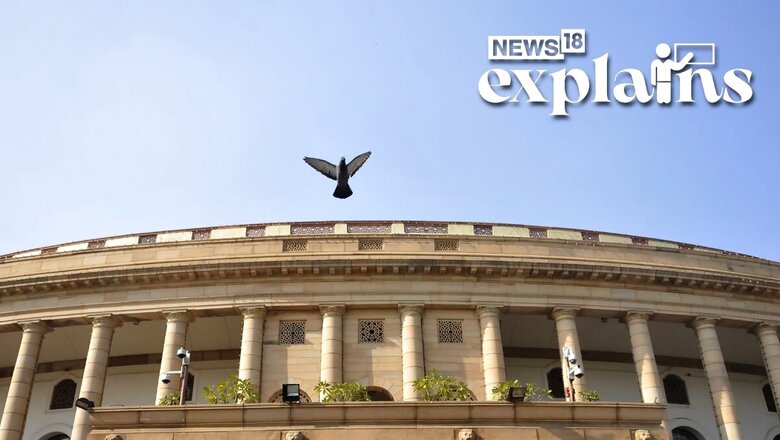
views
The Lok Sabha on Thursday passed the Jan Vishwas (Amendment of Provisions) Bill that seeks to promote ease of business by decriminalising minor offences.
The proposed legislation was first introduced in Parliament by the Union Ministry of Commerce and Industry in December last year. It was later referred to a Joint Committee of the Parliament for review.
The JPC presented its report with seven general recommendations to Parliament during the Budget Session in March, out of which 6 recommendations were accepted by the Union Cabinet.
What does the Bill propose?
The Jan Vishwas Bill aims to decriminalise around 180 offences by amending 42 laws across sectors including environment, agriculture, media, industry and publication.
The Acts which are being amended include The Drugs and Cosmetics Act, 1940; Public Debt Act, 1944; Pharmacy Act, 1948; Cinematograph Act, 1952; Copyright Act, 1957; Patents Act, 1970; Environment (Protection) Act, 1986; and Motor Vehicles Act, 1988.
#LokSabha passes The Jan Vishwas (Amendment of Provisions) Bill, 2023, as reported by Joint Committee. #MonsoonSession2023 pic.twitter.com/VWD1LeeCID— All India Radio News (@airnewsalerts) July 27, 2023
The other laws include Trade Marks Act, 1999; Railways Act, 1989; Information Technology Act, 2000; Prevention of Money-laundering Act, 2002; Food Safety and Standards Act, 2006; Legal Metrology Act, 2009; and Factoring Regulation Act, 2011.
The decriminalisation would mean that the imprisonment would be removed in some cases or the fine would be converted into penalties to provide a boost to the business ecosystem and improve the well-being of the public. Moreover, all offences under the Post Office Act, 1898 are being removed.
These 42 laws are administered by various Union ministries, including finance, food production and distribution, financial services, agriculture, commerce, environment, road transport and highways, posts, electronics and IT.
How will it Benefit Citizens?
The Bill will benefit citizens in the following ways:
- The Bill will help in rationalizing criminal provisions to ensure that citizens, businesses and the government departments operate without fear of imprisonment for minor or technical defaults.
- The bill establishes a balance between the severity of the offence or violation committed and the gravity of the prescribed punishment.
- The technical and procedural lapses and minor defaults had been burdening the justice delivery system and delaying the adjudication of serious offences. Therefore, the bill would reduce undue pressure on the justice system and reduce the pendency of cases.
- The decriminalization of provisions which affect citizens and some government employees will help them live without the fear of imprisonment for minor violations.
- Lastly, it will help in rationalizing laws, eliminating barriers and bolstering growth of businesses and will save time and cost for both the government and businesses.
The NDA government has repealed 1,486 laws and once this bill gets nod from the parliament, the number of laws removed from statute books will go up to 1,562, Law Minister Arjun Ram Meghwal said.
Minister of Commerce and Industry Piyush Goyal said around 40,000 provisions and procedures which had the possibility of creating problems for people were either simplified or removed by the Narendra Modi government over the last nine years.




















Comments
0 comment